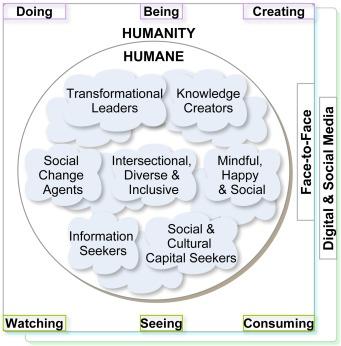Exploring the Future directions for SEL in Schools: Trends, Innovations, and Next Steps
Introduction: the Rising Importance of SEL in Schools
Social and Emotional Learning (SEL) has rapidly shifted from a “nice-to-have” to an essential cornerstone of modern education. In today’s complex world, SEL nurtures crucial life skills like empathy, self-awareness, responsible decision-making, and interpersonal dialog. As we look ahead, educators, administrators, and policymakers are focused on future directions for SEL in schools, driven by emerging trends, technological innovations, and a shared goal of holistic student success. This article delves into the evolving landscape of SEL, showcasing where it’s headed and how schools can stay ahead of the curve.
Why SEL Matters More Than Ever
- Academic Achievement: Studies consistently link robust SEL programs to improved classroom behavior and higher academic performance.
- Mental Health: SEL supports student well-being, reducing anxiety, depression, and bullying.
- Workforce Readiness: Soft skills like problem-solving and emotional regulation are increasingly crucial for future employment.
- Equity and Inclusion: SEL fosters a sense of belonging and respect, vital for diverse educational environments.
With mounting evidence of these benefits,the future directions for SEL in schools predict an even deeper integration into curriculum and school culture.
Emerging Trends in SEL: Where Are We Headed?
Staying ahead requires understanding current and upcoming trends in Social and Emotional Learning. Here are some critical trajectories shaping SEL in the years to come:
1. Technology-Enhanced SEL
- Digital SEL Platforms: Interactive apps, gamified tools, and online SEL curricula are making SEL more accessible and engaging.
- Real-Time Data Analytics: Platforms now track SEL progress, allowing for tailored interventions and more responsive teaching.
- Virtual and Augmented Reality: Immersive scenarios help students practice emotional skills in safe, controlled environments.
2. Culturally Responsive and Equity-Centered Programming
- Customization: SEL programs are being adapted to reflect cultural,linguistic,and community diversity.
- Anti-bias Education: Future-ready SEL addresses issues like prejudice, discrimination, and social justice, ensuring all students feel seen and respected.
3.Family and Community Engagement
- Schools are fostering stronger partnerships with families and local organizations to reinforce SEL outside of the classroom.
- Parent training and community events are becoming standard practice, supporting whole-child development.
4. Integration with Mental Health and wellbeing
- Extensive Support: SEL is converging with mental health services, creating wraparound support for all students.
- Early Detection and Intervention: Data-driven SEL helps flag emotional struggles, enabling earlier mental health support.
5. Policy Expansion and Funding
- more states and districts are mandating SEL standards, with dedicated funding for implementation and research.
- Evidence-based practice is guiding legislative decisions, emphasizing measurable outcomes for SEL programs.
Innovations Transforming SEL in Schools
As educators reimagine SEL for the future, several innovations stand out as game-changers:
- Artificial Intelligence: AI-powered platforms can personalize SEL lessons based on individual student needs.
- Student-Led SEL Initiatives: Empowering students to co-create SEL activities fosters leadership and deeper engagement.
- mindfulness Integration: Programs now incorporate mindfulness exercises to support emotional regulation and focus.
- Cross-Curricular SEL: Embedding SEL into STEM, arts, and humanities brings emotional learning into every subject.
- Restorative Practices: Shifting from punitive discipline to restorative conversations, helping students learn from mistakes.
Adopting these innovative strategies not only enhances SEL outcomes but also makes the learning experience more meaningful and impactful for diverse student populations.
Case Study: SEL in Action
Example: Urban Elementary School,Chicago
- Implemented a blended SEL curriculum combining in-person lessons and digital tools.
- partnered with local mental health providers for weekly in-school workshops.
- launched a parent SEL academy, resulting in higher engagement and student attendance rates.
- Within one year, the school reported a 30% drop in behavioral incidents and a 15% increase in student self-reported well-being.
This real-world case highlights the positive impact of forward-thinking SEL implementation and the importance of comprehensive, community-wide engagement.
Practical Tips: Preparing for the Next Wave of SEL
Schools looking to future-proof their SEL programs should consider these actionable recommendations:
- invest in Professional Development: Ensure educators are trained in the latest SEL methodologies and cultural competencies.
- Leverage Technology: Utilize digital platforms for SEL assessments,progress tracking,and engaging content delivery.
- Involve Stakeholders: collaborate with families, mental health professionals, and local organizations for a holistic approach.
- Focus on Equity: select or adapt SEL curricula that honor different identities and experiences represented in your school community.
- Measure and Reflect: Regularly assess the effectiveness of SEL programs through student feedback and measurable outcomes.
Looking Forward: Next Steps for Schools and Educators
The future of SEL in schools is bright and brimming with possibility. To remain leaders in student well-being and academic achievement, schools should:
- Stay informed about current research and policy changes surrounding SEL.
- Advocate for increased funding and policy support for SEL initiatives at all levels.
- Foster a school culture that celebrates social and emotional growth as much as academic success.
- Encourage student voice and agency in shaping the next generation of SEL programming.
Conclusion: Shaping the Future of SEL Together
As schools embrace transformative trends and innovations, Social and Emotional Learning will only deepen its role at the heart of education. By tapping into technology, prioritizing equity, and involving the entire school community, educators can ensure SEL prepares students for both the challenges and joys of the future. The next steps in SEL may be complex, but with vision and collaboration, every school can create an surroundings where students thrive—academically, emotionally, and beyond. The journey to a brighter,more empathetic future starts now.

